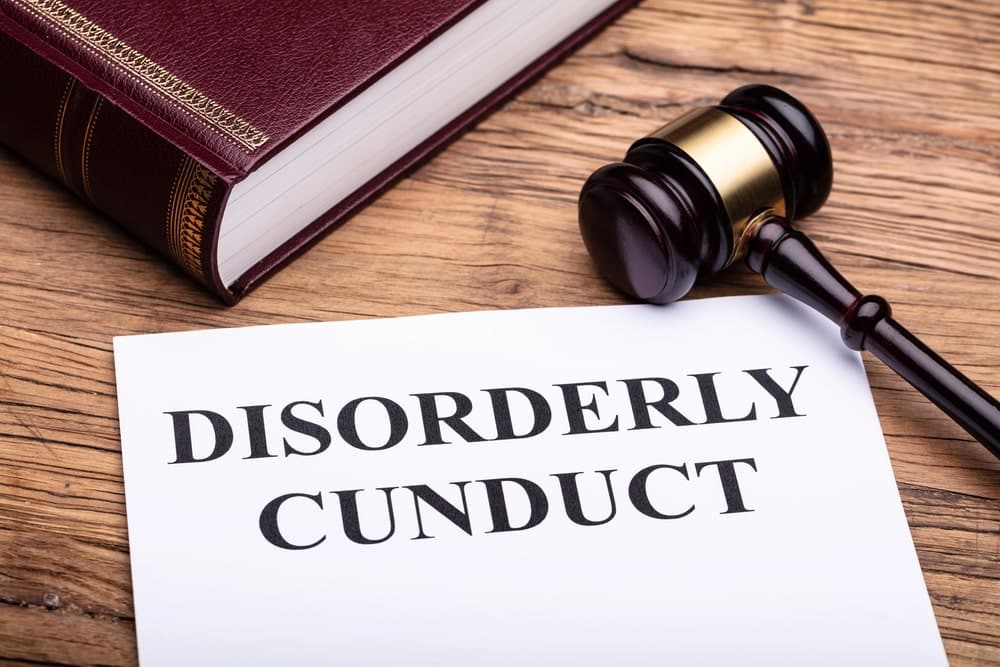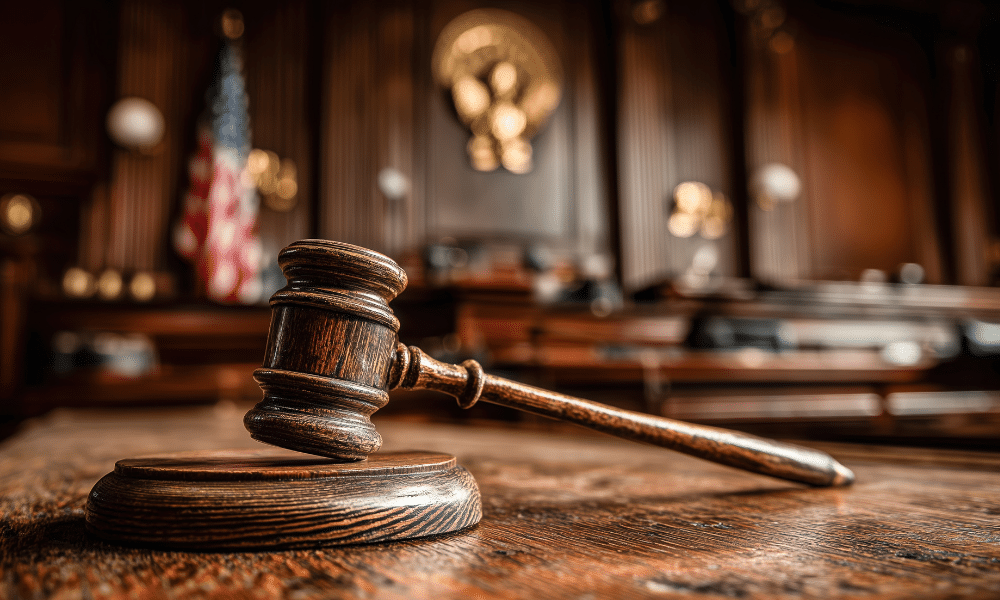Defendants in criminal cases typically have four options for resolving their case if the charges are not dismissed:
- Plea negotiation, where the defendant agrees to plead guilty (or no contest) to one or more charges in exchange for a concession from the prosecution.
- Plead guilty/no contest with an agreed-upon disposition (outcome).
- Plead guilty/no contest without an agreed-upon disposition. The State and the defense present arguments for the appropriate sentence, which the court will decide upon.
- Proceed to a trial, where a judge or jury will decide guilt or innocence and, if convicted, a sentence will be imposed.
In Maine, a fifth option is deferred disposition. Let’s take a look at what this is, who it may be available to, and how it works in practice across the state.
Call 207-571-8146 or contact us online to schedule a consult with one of our highly skilled OUI/DUI & criminal defense attorneys, serving Maine, today.
Table of Contents
How Deferred Disposition Works in Maine
Deferred disposition is an alternative sentencing option available to some defendants in Maine. As with plea bargaining, this option requires agreement from the State before it can proceed.
With deferred disposition, the prosecutor and the defendant sign a legally binding deferred disposition agreement, which acts like a contract outlining the responsibilities of each party.
The defendant then enters a guilty plea but the court does not impose a sentence. Consequently, this is not regarded as a conviction. In Maine, a conviction is registered after the sentence is imposed.
After the guilty plea is entered, the court postpones the final disposition of the case for a predetermined period, typically six months to one year, but sometimes longer.
If the defendant successfully meets all obligations, as stated in the deferred disposition agreement, the charges against the defendant will be dismissed or reduced at the end of the designated period. In most cases, successful compliance with the conditions results in the defendant having no conviction or criminal record.
However, with deferred disposition, the State can find defendants guilty of the original charges if they fail to comply with the conditions. This guilty verdict cannot be appealed.
Who Qualifies for Deferred Disposition?
Deferred disposition is more likely to be an option for first-time offenders or young people accused of certain misdemeanor offenses, such as shoplifting, trespassing, low-level domestic violence cases, underage possession of alcohol, low-level drug offenses, prostitution, or the destruction of property.
This type of alternative sentence may also be an option where the State’s case is particularly weak or the defendant has taken active steps to address the underlying issue that led to the alleged criminal behavior.
Many times, deferred disposition is an option for people with mental health problems or addiction issues that would not be resolved by spending time in jail.
What is the Difference Between Probation and Deferred Disposition in Maine?
At first glance, deferred disposition and probation are almost identical. Indeed, deferred disposition can be considered a form of probation.
The main difference is that deferred disposition is a plea agreement offered to a defendant before a criminal case is resolved, while probation is a criminal penalty imposed after a conviction, preventing imprisonment.
There are also key differences with the conditions imposed.
Call 207-571-8146 or contact us online to schedule a consult with one of our highly skilled OUI/DUI & criminal defense attorneys, serving Maine, today.
Conditions of Deferred Disposition vs Probation
Below is an overview of the types of conditions imposed in deferred disposition agreements compared with those imposed by a judge for probation.
Conditions of Deferred Disposition
Typically, the defendant is required to perform community service, maintain employment or schooling, attend counseling, complete a substance abuse evaluation, receive appropriate treatment like anger management, pay restitution to the victim, pay monthly court fees, etc. These conditions vary based on the charges filed.
Conditions of Probation
With probation, a judge can order a wide range of requirements, including:
- Regular meetings with the probation officer.
- Maintaining adequate employment.
- Refraining from alcohol or drugs.
- Not possessing firearms.
- Not committing any other criminal offense.
- Remaining within state lines unless prior permission is sought and received.
- Submitting to random alcohol and drug testing.
- Paying restitution to the victims of the crime.
- Attending court hearings.
Modification of Deferred Disposition Requirements
According to the Maine Legislature, deferred disposition agreements may be modified during the period of deferment if the person granted deferred disposition applies for a modification or by court motion.
A hearing may be held, after which the court may modify the conditions imposed on the defendant, either adding further requirements or relieving any conditions that, in the court’s opinion, impose an unreasonable burden on the individual.
Deferred Disposition May be an Option Depending on Where You Live
The judicial system in Maine exhibits several disparities between counties—and the handling of deferred disposition cases is a good example of inconsistencies in the system from one county to another.
Some counties put greater resources into supporting people who are prepared to admit to a crime for a chance to avoid a criminal record, especially young people and first-time offenders who have committed relatively minor crimes. With the Maine courts overloaded with cases and the prisons dealing with high populations, the benefits of this for the State, as well as the accused, are clear.
Cumberland County, for example, has handled many thousands of deferred disposition cases in the past 20 years since they began the practice, with over 80 percent of cases complying with the conditions imposed.
However, in other counties, deferred dispositions are much less common, highlighting an inconsistency in how criminal cases are handled statewide. Much of the lower uptake of deferred disposition cases is due to a lack of funding in some counties to adequately monitor, track, and support the offender during the deferred disposition period.
Your chances of being offered deferred disposition vary according not only to your age, criminal record, and the charges you face, but also where in Maine you live or are charged. This should be discussed with a qualified criminal defense lawyer as part of your defense strategy.
For experienced legal help and support with any criminal charge, call The Maine Criminal Defense Group or contact us directly online for an initial case evaluation.
Call 207-571-8146 or contact us online to schedule a consult with one of our highly skilled OUI/DUI & criminal defense attorneys, serving Maine, today.
Blog Article

After an arrest and criminal charge in Maine, a defendant’s first court appearance may be to apply for bail at the arraignment and bail hearing. The process of securing a[...]

If you are charged with a crime in Maine, going to trial is just one of the possible outcomes. In fact, around 90 percent of criminal cases in Maine are[...]

Many people are unaware that it is a criminal offense in Maine to make a false report of an emergency that causes public alarm. Even those who are aware of[...]

A criminal conviction usually appears on criminal records for life in Maine, potentially impacting the individual’s employment, education, travel, housing, immigration status, and more. However, certain low-level misdemeanor convictions can[...]

The legal term for sentencing a convicted criminal is not required to serve is called a suspended sentence. A suspended sentence is handed down during the sentencing portion following a[...]

If you receive a traffic ticket in Maine, you may be facing far more than demerit points or an administrative penalty. You could be facing criminal sanctions and a permanent[...]

In Maine, disorderly conduct laws effectively make disturbing the peace a criminal offense. While disorderly conduct is considered one of the least serious offenses under Maine’s Criminal Statutes, it can[...]

Any criminal charge for a drug-related offense is a serious matter in Maine,but how consequential the outcomes can get may depend on whether the charge is filed at the state[...]


Self-defense laws in the U.S. are complex, vary from state to state, and are often misunderstood. “Stand your ground” laws allow an individual to use deadly force in self-defense in[...]
